V.R. Christensen's Blog, page 7
August 15, 2012
Book review: Merits and Mercenaries
A Classic Companion by A Lady
Katherine grew naturally into a handsome, intelligent and truly generous young woman, drawing from her aunt’s strength of character—and her late uncle’s sorry lack of it.
And so begins Lady A~’s exquisitely written Austen-esque masterpiece, Merits and Mercenaries. It isn’t very often I’m completely absorbed in a book. So absorbed that I go to bed thinking about the story’s many layered conflict, and dreaming about the characters, planning and plotting in their behalf, trying to sort out in my head just where the story might go, and all the seemingly impossible obstacles that must be overcome to get it there. It was just that way for me as I read this wonderful book.
This was just a superbly written, cleverly concocted, shining example of what Historical Fiction ought be but rarely is. Here were no attempts to modernise the heroine, or even the conflicts of the story. So much of what motivated and concerned humanity two hundred years ago, motivates and concerns us today. On the other hand, here was no overwrought attempt to recreate Austen-esque literature. It was certainly recreated, but the product could hardly be called overwrought. The narrative was natural and flowing and the dialogue absolutely sparkling with wit and charm. The author never once talks over our heads, and when she fears a question may arise, she cleverly refers us to annotations kindly included in the back of the text. This is a welcome embrace to fellow fans of Jane Austen, and, too, of Literary Historical Fiction, as well.
I like complex plots; I yearn for them. I like big, thick books with rich characters that are engaging and compulsively followable. This book gave me both, but in a way I found cleverly deceptive. The conflict was simple. A young woman, Katherine, is taken to the country by her guardian aunt, in the hopes of presenting her with some new prospects for marriage. Of course Katherine is naive to her motivations and goes about her life, adjusting, albeit reluctantly, to the countryside. In Hampshire we are introduced to country society, among them potential friends, some worthy, others not so much. Here among them as well are one or two—or perhaps four—potential suitors. It isn’t a grand mystery for whom Katherine is intended, but the hero is engaged to another. And it’s an unbreakable commitment, assigned to him upon his father’s deathbed. What are two people in love to do? Save, of course, to resign themselves to their unhappy fates. But it isn’t the hero’s prior commitments alone that stand in the way of our dear Katherine’s happiness, for an intricate web of deceit and interference is slowly woven to ensure that Katherine does not prove an irresistible temptation to our would-be hero. For he simply must marry as he has been charged to do. Mustn’t he?
And so we are guided, led, drawn, through each and every page, as if the author were leading us on a long walk, on a warm spring day, on our very first journey through Holland Park, where some new bit of scenery, an unexpected but always pleasant surprise, awaits us at every turn. I look forward with great pleasure—with anticipation—for Lady A~’s next work.
To find out more about the author, please do visit her at:
And please, do get a copy of your own. You won’t regret it!
Merits and Mercenaries is available at these online retailers:
July 15, 2012
On Empathy and Research
 I’m not a research historian. I’m sorry if I’ve disappointed you, or if that somehow belittles what I do. But I don’t believe in pretending to be what I’m not. What I am is honest. What I am is empathetic. Now and then, however, I get a little tired of being bombarded by bombastic pedants, who would belittle the work I do (or that my friends do) in order to make themselves look like experts. It happens more than I’d like. And frankly, I’m tired of it.
I’m not a research historian. I’m sorry if I’ve disappointed you, or if that somehow belittles what I do. But I don’t believe in pretending to be what I’m not. What I am is honest. What I am is empathetic. Now and then, however, I get a little tired of being bombarded by bombastic pedants, who would belittle the work I do (or that my friends do) in order to make themselves look like experts. It happens more than I’d like. And frankly, I’m tired of it.
I’ve been posting a lot of research pieces lately, not only on my blog, but in other places. I find such pieces very difficult to write. History is so complex and many layered, and fitting all the necessary details into a 1,000 word post, is often nigh to impossible. Drawing conclusions about those details, making judgments or ‘aspersions’ is…well, it’s dangerous. But it’s also, in my opinion, necessary. How does one learn anything useful or improving without making a judgment, of one kind or another, about it? You don’t. You can’t. For a research historian, perhaps this is right and proper. For a novelist, it’s wrong. And I’ll tell you why.
The fact of the matter is, there are different types of research, necessary for different purposes, and conducted by people who simply function differently and under different motivations. There’s nothing wrong with that. There’s never one way to do anything. What it comes down to is how we think, how our brains function, how we see the world, and what we wish to gain from studying the history of it. Another thing I think it comes down to, is an ability or inability to empathise with historical facts and figures. Because unlike Math or the Sciences, History’s facts and figures are, or rather were, people.
I’m also a sort of a hobbyist psychologist. That is, I study personalities. I find it useful in my writing, but more than that, it’s useful in my daily life. There are basically two cognitive functions, those being sensing and intuition. Those who rely on the sensing cognitive function are great at collecting data, remembering dates, names and places. Such data is easily gathered and stored in the memory of the sensing individual. What can be seen, touched, held, remembered, these matter most.
I’m not a sensing individual. I’m the other kind. The weird one few understand. I can gather data as well as anyone else. What I can’t do is remember it. My brain, as much as I’d like it to, just doesn’t work that way. What I can do, however, and I do it quite well, is it forms impressions of things, I see broad patterns and trends, I can understand, and reproduce, how it may have felt, to live in a certain period of history. I may not be 100% right. It may just be my interpretation. But my guess is as good as anyone’s. I’ve not met anyone yet who possessed a time machine.
What lately helped me to see that this difference in method comes down to individual ability and motivation was an article sent to me by another writer friend. The article is on how most criticism is based on a lack of ability to empathise. Seemingly it has little to do with research. To me it has a great deal to do with it. Do you welcome discussion about your topic of choice? Or do you feel challenged by anyone with a differing opinion? If you cannot see the other person’s point of view, does that not reflect an inability to empathise?
But what about casting judgment? Does my lamenting the wrong done to the Jew in Hitler’s Germany (and elsewhere) mean I have an inability to empathise? Or do I, in feeling sorrow for their plight, in feeling the weight of that tragedy, judge Hitler and his minions? I do both, of course. Hitler was an evil man. I have judged him. Now, to do justice to history, I must try to understand him, to try, if I can, to learn what made him into the monster he became.
I do understand the caution against making simple judgments about historical figures and events. There is nothing at all simple about history, because there is never anything simple about people. For me, it isn’t enough to simply learn about history. I want to learn from it. I want to delve deeper, to explore the hows and whys of it all. Dates and facts and names will get me so far. I want to go farther. Eventually I am going to make a judgment. I am going to ask myself if I would have behaved similarly in their shoes, and why or why not. I’m going to ask myself what prices we are still paying for the decisions made by the men and woman who came before me. How is life better? How is life worse?
We cast judgments. It’s what we do. The irony is that those judgments, historically speaking, are rarely about individuals. They are about the pitfalls of vice, or the rising and falling of civilisation. I wouldn’t dare cast a judgment on a husbandless mother in Victorian England, but I can look back on it and make judgments about the conditions that placed women in such desperate situations, or that would starve children and drive them to work, scampering up chimneys and working on the streets to bring home (if they had a home) enough to eat. Did they understand it then the way we understand it now? Possibly not. And so my job, then, is to try to stand in their shoes. To try, if I can, to look at it from every angle, from the gentleman’s wife who doesn’t want the dirty little beggar in her house, to the gentleman’s children who wonder what it’s like inside a chimney, or if the little fellow doesn’t want a bit of tea. Life was different then. It wasn’t so different as to remove human feeling.
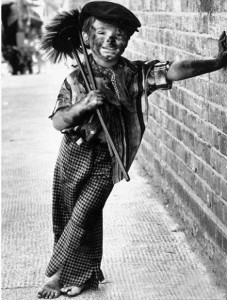 But I’m not a historian. What I am is a novelist whose primary aim is to teach, and to do it in a setting that is as accurate as humanly possible. The problem is, history is, well, history. None of us has ever spent any actual time in the Regency or Georgian or Victorian eras. None of us really knows what it was like. What we can do is read as much as we can, try to immerse ourselves in the atmosphere of it, read biographies, and histories, and studies. Better than that, read letters and journals and other contemporary publications. And then put ourselves in the shoes of those who walked there. This requires passing judgement, presuming, if you will, upon history. But as a novelist, it’s the very best thing I can do for my books, and for my readers.
But I’m not a historian. What I am is a novelist whose primary aim is to teach, and to do it in a setting that is as accurate as humanly possible. The problem is, history is, well, history. None of us has ever spent any actual time in the Regency or Georgian or Victorian eras. None of us really knows what it was like. What we can do is read as much as we can, try to immerse ourselves in the atmosphere of it, read biographies, and histories, and studies. Better than that, read letters and journals and other contemporary publications. And then put ourselves in the shoes of those who walked there. This requires passing judgement, presuming, if you will, upon history. But as a novelist, it’s the very best thing I can do for my books, and for my readers.
Rightly or wrongly, it all comes down to empathy. Agreeing or disagreeing with another person’s research, unless the bare facts are just wrong, comes down to empathy, too. Can you see how they came to their conclusion? If you disagree, then why? Is it because you know more, and you are the expert and how dare anyone challenge you? Is it an inability to see where they came from? And do you care?
Personally, I find the world more interesting with different points of view. No one owns a monopoly on history. I know I don’t. And people aren’t afraid to remind me of the fact. I’m happy to discuss it, so long as you can do it in a friendly and respectful manner. If not. Move along. I’ve got some research to do.
July 9, 2012
The Mystery of Mary Rogers
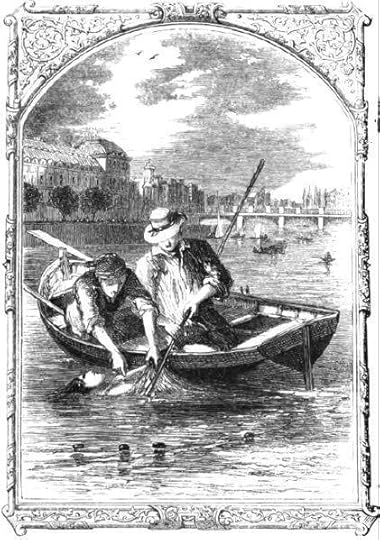 Mary Rogers and her mother, Phoebe, arrived in New York in 1837. For the first few months of their residence, they lived with a gentleman named John Anderson, who owned a tobacconist shop. Anderson employed Mary and there she earned a sort of celebrity. She was universally considered a striking beauty and had many admirers, all of which, of course, were pleased to buy tobacco from Mr. Anderson. The hiring of attractive shopgirls was a common practice in Europe. It was still considered rather indecent in the US. Still, Mary needed the work, and Anderson paid her well to maintain her post safely behind the shop’s counter.
Mary Rogers and her mother, Phoebe, arrived in New York in 1837. For the first few months of their residence, they lived with a gentleman named John Anderson, who owned a tobacconist shop. Anderson employed Mary and there she earned a sort of celebrity. She was universally considered a striking beauty and had many admirers, all of which, of course, were pleased to buy tobacco from Mr. Anderson. The hiring of attractive shopgirls was a common practice in Europe. It was still considered rather indecent in the US. Still, Mary needed the work, and Anderson paid her well to maintain her post safely behind the shop’s counter.
In October of 1838, Mary disappeared. Her mother found a note on her dressing table which bid her “an affectionate and final farewell.” It was speculated that she had been disappointed in love. She had recently had a suitor, it was said, who had deserted her, and some believed she had gone with the intention of taking her own life. Others speculated she had eloped. A search party was organised, but Mary returned on her own, some say a few hours later, others claim it was a matter of weeks. The following day, the motivation of suicide was reported to have been a hoax, and that the letter had either never existed, or had been written by someone with an eye toward mischief. When exactly Mary returned, it is unknown, but it is known that it was a matter of a few weeks before she returned to work. Anderson, naturally, was quite worried for her. Some say he made a public plea for her to come home. His interest in the family, and the true nature of his relationship with them, is a point of interest to those who study the mystery today.
In time, talk of Mary’s disappearance and subsequent return quieted, and she continued her work at Anderson’s Tobacco Emporium. In 1839, having come into a little money, she and her mother purchased a boarding house and she left Anderson’s shop. Here Mary was once more beset with suitors, two of which being Alfred Crommelin, a polite gentleman with good manners and elegant bearing, and Daniel Payne, a cork cutter, who was known to be hot tempered and inclined to drink very heavily, even by the standards of the day. Both gentlemen were lodgers in the boarding house.
By June of 1841 Payne was recognised as Mary’s preferred suitor. Crommelin returned to the boarding house one evening to find Payne and Mary engaged in “unseemly intimacies”. He rebuked Payne for his ungentlemanly behavior and quit the house for good. Before going, he apologised to Mary for the step he was taking and begged her to remember him if she should everfind herself in trouble. And then he was gone.
In July Mary disappeared a second time.
According to reports, Mary arose before dawn on 25 July 1841, helped to prepare breakfast for her mother’s lodgers and attended her various morning chores. Shortly before ten o’clock she knocked at Payne’s room and she informed him, through the half open door, that she was going to visit her aunt, Mrs. Downing, who lived fifteen minutes away by omnibus. It was her plan to return in the early evening, and she wished for Payne to meet her so that he might escort her safely home.
A few days earlier, according to some reports, Mary had been persuaded by her mother to break off her engagement to Payne. That same day, Crommelin received a note asking him to call at the boarding house. When he arrived at his office, he found a second note, written on a chalk slate. Despite her summons, and the romantic intentions implied by the red rose she left in his keyhole, Crommelin did not go to the boarding house again.
Payne, on the day of Mary’s visit to her aunt, kept himself busy by visiting his brother, a market, a tavern then an eating house before going home to take a long nap. He arose in the evening and went to meet Mary, and only then realised the omnibus did not run on Sunday. An approaching storm soon drove him back home, where he decided Mary must spend the night at her aunt’s.
The following morning, Mrs. Rogers was in great anxiety, for Mary had not returned home. Payne was not yet worried, and so went to work, but when he returned at lunchtime, and finding Phoebe in an even more anxious state and Mary still not at home, he went then to the aunt’s house to discover that Mary had never arrived there. Nor had the aunt ever expected her. He posted an ad in the paper giving Mary’s full description, and then returned to the boarding house, where Mary’s mother was now in a state of lethargy.
On Tuesday, Payne went to a tavern on Duane Street, where Mary was said to have passed several hours, but upon arriving there he found the description did not match Mary’s at all. From there he went to the ferry launch at Barclay street which crossed the Hudson to Hoboken, where he asked several strangers, and stopped at a few homes along the way to find out if Mary had been seen there. He then wandered on toward Elysia Fields, where he continued to make inquiries
Crommelin was now aware of Mary’s disappearance, but took no action until Wednesday when he was shown the missing person’s report that Payne had put in the paper. He hurried to the boarding house, where he found Phoebe, glassy eyed and in a state of mourning, and Payne standing at her side. Crommelin, then began a search of his own, retracing the steps Payne had taken the day before, going to Hoboken, and then to Elysian Fields.
While he was searching Hoboken, a body was found floating in the river. Two men in a rowboat towed it to land and the body was pulled ashore. 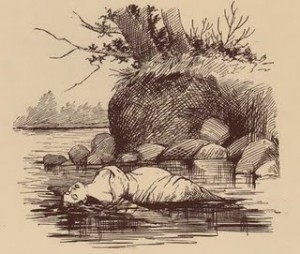 Crommelin pushed his way through the crowd to see it. What he saw must have shocked him a great deal. He certainly could not have recognised her by her face. To identify her, he ripped open a portion of her sleeve and examined the hair on her arm. This, evidently providing ample proof, he declared it to be Mary Rogers, then crouched protectively over the body until the crowd dispersed and an official was called to the scene.
Crommelin pushed his way through the crowd to see it. What he saw must have shocked him a great deal. He certainly could not have recognised her by her face. To identify her, he ripped open a portion of her sleeve and examined the hair on her arm. This, evidently providing ample proof, he declared it to be Mary Rogers, then crouched protectively over the body until the crowd dispersed and an official was called to the scene.
Dr. Richard H. Cook, the New Jersey coroner, was the first to arrive. It was a hot July day, and the condition of the remains threatened to deteriorate further as her body veritably consumed itself in the heat. When at last the justice of the peace appeared on the scene, the body was removed to a nearby building and the autopsy was performed. The face he examined was suffused with bruised blood. She had clearly been beaten, and there was no foam in her mouth or lungs. This was no drowning victim. On her neck, he observed deep bruising in the shape and approximate size of a man’s hand. As he examined the marks more closely, he found that a piece of lace was tied so tightly around her throat that it had embedded itself into her skin. He had not so much as seen it, but felt the knot which was situated just behind her ear. The undergarments of her clothes were found in disarray, and, upon closer examination, he found evidence of bruising and abrasions in the “feminine region”. He concluded she had been raped by no fewer than three assailants. Her arms had been positioned as if her wrists had been tied together, and the abrasions caused by the tethers seemed to indicate she had tried to raise her hands to her mouth. A loop of linen was found tied loosely about her neck, as if it had been used as a sort of gag. These strips had been torn from her own clothes, which matched precisely the description of those last seen upon Mary Rogers. What’s more, a foot wide strip of fabric had been torn from her petticoat and wrapped around the body to form a sort of hitch to aid in the carrying of the corpse. Her hat had been tied on her head with a sailor’s not, rather than the typical knot tied by a lady, suggesting it had been replaced by her assailant or someone connected with the crime, before her body was thrown in the river.
About the time the autopsy began, one of the men, H.G. Luther, who had pulled the body from the water, arrived at Mrs. Roger’s home to deliver the news. Payne was there, standing protectively by her side. They received the news with apparent indifference. Perhaps it was resignation. But the lack of emotion was curious to Luther. Even more curious, Payne took no action that night. It was still early. He might easily have gone to Hoboken. He might have hoped to add a second witness to the identification of the body. He might have gone with a hope of finding that Crommelin had been mistaken. He stayed at home with Mrs. Rogers.
In the time it took for the officials of New Jersey and New York to decide who would take responsibility for investigating the death of Mary Rogers, rumors and speculations began to fly from every direction. For a time it was believed Mary had fallen into the hands of one of the many and notorious gangs that frequented the Hoboken area. Others were certain it was one of her jilted lovers. Some felt it wasn’t Mary at all, supported by the belief that a body that was in the water for no more than three days could not have decomposed to such an extent, or even, for that matter, risen to the surface.
Of course Payne and Crommelin were suspects. Payne’s alibi, at least for the first few days of Mary’s disappearance, were solid. He had been with his brother, had frequented taverns and eating places, and witnesses could attest to his being there. Crommelin, too, was a suspect, but as he had been so outspoken and proactive in finding her, and then in discovering the killer, it seemed impossible it could be him.
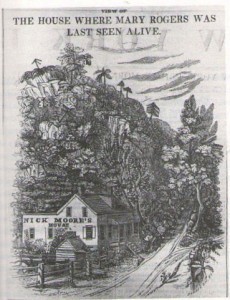 And then, on the 25th of August, as two boys were hunting for sassafras bark in a thicket in the woods near Weehawken, some articles of clothing were found. Among them was a petticoat, an umbrella, a silk scarf and a handkerchief with M.R. embroidered upon it. The boys took the articles to their mother, the owner of a nearby tavern, who put them away, and then, a day later, took them to the police. Frederica Loss’s tavern was very near, and often frequented by those who visited, Elysian fields. Mrs. Loss, upon being questioned, remembered, if rather belatedly, that a young woman of Mary’s description had been seen at her establishment. She had been accompanied by a young man of ‘swarthy complexion’, and went on to describe Mary’s attire and appearance exactly. Mrs. Loss told police that a short time after the couple left, she heard screams issuing from the area of the thicket. She thought it was her son, whom she had sent out again, but he returned a short time later unharmed.
And then, on the 25th of August, as two boys were hunting for sassafras bark in a thicket in the woods near Weehawken, some articles of clothing were found. Among them was a petticoat, an umbrella, a silk scarf and a handkerchief with M.R. embroidered upon it. The boys took the articles to their mother, the owner of a nearby tavern, who put them away, and then, a day later, took them to the police. Frederica Loss’s tavern was very near, and often frequented by those who visited, Elysian fields. Mrs. Loss, upon being questioned, remembered, if rather belatedly, that a young woman of Mary’s description had been seen at her establishment. She had been accompanied by a young man of ‘swarthy complexion’, and went on to describe Mary’s attire and appearance exactly. Mrs. Loss told police that a short time after the couple left, she heard screams issuing from the area of the thicket. She thought it was her son, whom she had sent out again, but he returned a short time later unharmed.
The discovery of the ‘murder thicket’ raised as many questions as it answered, however. It was so close, and so overgrown, that a person could only enter it on hands and knees. There were many footprints about, the clothing found had been caught on brambles, had mildewed and been overgrown with grass. If the path to the tavern was so well travelled as to give Mrs. Loss a steady flow of customers from Elysian Fields, how was it possible the articles were never seen before? How was it possible, through the July and August rains, that the footprints still remained? Was it likely a man would attempt a murder so nearby the tavern, a mere 400 yards away?
It was suggested by some that Mrs. Loss had planted the articles there herself. The truth of this is impossible to know, but she certainly enjoyed a brisk business after the discovery, for there were many who came to get a glimpse of the place for themselves.
Payne was one of them, but he got no pleasure from viewing the scene. At ten o’clock on October 7, he arrived at a nearby tavern, where he ordered a drink and announced, “I’m the man that was promised to Mary Rogers. I’m a man in a great deal of trouble.” It seems he left the tavern and arrived at the thicket with a bottle of laudanum in hand. Upon entering the thicket, he drank it down and crushed the bottle against a rock. Two hours later he was found dead with a note in his pocket. “To the World—Here I am on the spot; God forgive me for my misfortune in my misspent time.” There was also a bundle of papers in his pocket. What they contained was never revealed. It is assumed by most, that they contained nothing of import. At the time, the silence of the investigators on the subject aroused a great deal of speculation.
Poe, eager for the same success he had experienced with The Murders in the Rue Morgue, found an opportunity to employ his deductive reasoning skills, or, as he preferred to call it, ratiocination. C. Auguste Dupin was called into action again, and this time, he bragged, would perform the feat of solving the mystery from his armchair and by using only the newspapers for his source. How accurately anyone can determine a true cause of a crime from newspapers is beyond me. Sensational journalism is not factual reporting by a long shot, as I mean to prove in an upcoming post. (Link to come.)
What Poe did manage to convince his readers of, was that the murderer had acted alone. Why else would he need the aid of the ‘hitch’ found tied around Marie’s waist. He also connected Mary’s first disappearance with her first, suggesting that the sailor with which she had meant to elope the first time, had returned from sea. He also went on to suggest that perhaps a falling out had occurred, and the romance ended, instead, in tragedy.
But that wasn’t the conclusion his readers received.
Poe’s manuscript was some 20,000 words in length, and so it was published in three parts. At this point two of the three had been published. The third promised to “indicate the assassin.” But it had not yet hit the presses when the New York Tribune published headlines that read “THE MARY ROGERS MYSTERY EXPLAINED.”
Indeed, new evidence had arisen that blew all of Poe’s theories out of the water. He revised the third part to sort of indicate he knew the solution all along. All it succeeded in doing was muddying the waters of his ‘ratiocinating’. He ends by telling his reader that Dupin has solved the mystery, that all will soon know it, but for the sake of justice and respect for the police, he will leave them to tell the tale. Years later he would take another stab at realligning his solution with that which was soon to be the commonly accepted one. He added passages and footnotes that, for the first time, showed a direct relation to Mary Rogers. He also added a caveat, that he might have been better prepared to solve the mystery had he been in New York, and not had to rely on the papers, a complete reversal of his earlier boastings of the skill of a detective who could solve a mystery from his armchair.
So what was the evidence that reduced Poe’s Marie Roget into inconclusive and muddled literary nonsense?
On November 1, 1842, Police arrived at Nick Moore’s Tavern in Weehawken to discover that Mrs. Loss had been accidentally shot by one of her sons, who was later heard to remark, “The great secret will come out.” What was that secret? For some time, it seemed, Mrs. Loss had been under the attention of the investigative police in connection with a famous abortionist named Madame Restell, whose services were advertised in huge, prepaid advertisements published on the back of every paper in town. Her money was not spent at the papers’ alone, but to the police as well, who arrested her on several occasions, but always released her again. Perhaps her habit of paying her $10,000 bail money in cash (and with an extra $1,000 as a tip) helped her some.
Though Madame Restell was somewhat protected by the police, she was considered an enemy to the people, and to society at large . Giving birth alone came with incredible risks. Add to that poisons, unctions of curious make, unsanitised instruments, the mortality rate was astounding. Mary’s body was not the first to be pulled from the Hudson river, merely the most famous. She had so far been lauded as a chaste, respectable maiden. What was she now? That Madame Restell was a millionaire with a brownstone mansion only attested to how sought after were her skills. Sad to think what combination of circumstances would have driven these women to seek her services.
But Madam Restell was rather expensive. Who did you go to if you could not afford her? Why she would refer you to some of the other foetocidal houses in the city, those who charged less and were less proficient in their trades.
The conclusion of Mary’s mystery was accepted by most. It provides a not quite tidy solution. Mary’s mother seemed to have known that when Mary left she was going to her death. It would explain her stoicism upon the news that Mary’s body had been found. She had gone to have an abortion. Had it been a success, she would have returned already. It explains why Mary went to Crommelin to begin with. It was said she went to him to exchange a boarder’s IOU for money. A sum of some fifty dollars. If Payne were the father, it might explain his apparent guilt at her death. It might explain why Crommelin was hesitant to help her. Perhaps she meant, by leaving the rose in the keyhole, that she mi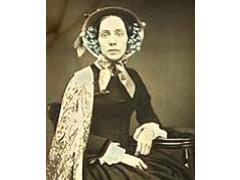 ght marry him instead, were he to help her. Perhaps his not giving her the money was the reason she went to Mrs. Loss rather than Madame Restell.
ght marry him instead, were he to help her. Perhaps his not giving her the money was the reason she went to Mrs. Loss rather than Madame Restell.
But if this soon to be accepted solution provided answers to these questions, it left many more unanswered. If she had died at the hands of an abortionist, what need had they for a garote to strangle her? Why was she so violenty beaten and strangled? Was it to disguise what had really happened? Or was it a combination of the two? Had she gone to have the abortion? Had it been a success? Had she met Payne and refused to marry him. Had he killed her? Or had she died under Mrs. Loss’s roof after all? No one, it seems, will ever really know. They Mystery of Mary Rogers, remains, and will likely always remain, a mystery.
July 4, 2012
Edgar Allan Poe and the beginning of Crime Reporting (Stateside)
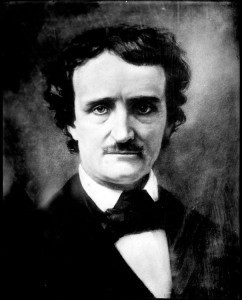 Over on Goodreads we’re having a discussion about Edgar Allan Poe’s Dupin Mysteries. Some really interesting discussion has been going on there, and the question of the history of Crime reporting and detective novels came up. Last October, during my Poe-athon, I bought, but did not read, “The Beautiful Cigar Girl” by Daniel Stashower. As I’ve already read the Dupin Mysteries, I decided it was time to read “The Beautiful Cigar Girl”. This is one riveting book, and I highly recommend it if you are a fan of Poe or even of murder mystery and reporting.
Over on Goodreads we’re having a discussion about Edgar Allan Poe’s Dupin Mysteries. Some really interesting discussion has been going on there, and the question of the history of Crime reporting and detective novels came up. Last October, during my Poe-athon, I bought, but did not read, “The Beautiful Cigar Girl” by Daniel Stashower. As I’ve already read the Dupin Mysteries, I decided it was time to read “The Beautiful Cigar Girl”. This is one riveting book, and I highly recommend it if you are a fan of Poe or even of murder mystery and reporting.
I find it interesting that the subtitle of the book is “Mary Rogers, Edgar Allan Poe, and the Invention of Murder.” Also on my soon to be read list is Judith Flanders’ most recent book, “The Invention of Murder.” It’s an intriguing premise if you think about it. Murder was not invented in the Victorian era, but, rather, the reporting and sensationalising of it was. What does this have to do with Poe’s Dupin Mysteries? And how do they influence the detective novels that followed, such as Sir Arthur Conan Doyle’s Sherlock Holmes? The answers are in Stashower’s book, and for the sake of the current discussion going on at Goodreads, I’m making an attempt to roughly delineate them here.
In 1825 “The Kentucky Tragedy” went to trial. Known as the Beauchamp-Sharp murder case, it involved a young woman, Ann Cooke, who was seduced and cast aside by Colonel Solomon P. Sharp, solicitor general of Kentucky. She had his child and then turned to another suitor, Jeroboam O. Beauchamp, whom she agreed to marry if he would avenge her honor. Sharp would not agree to a duel and so Beauchamp, donning a disguise, stabbed him to death. Beuchamp received a death sentence and on the eve of his execution, Ann joined him in his cell where they both attempted suicide by poison and self inflicted stabbing. She died that night. He lived long enough to be hanged.
The story inspired many people to write about it, including Poe, who, finding it the stuff of Shakespearian drama, placed it in an Italian setting and began to serialise it. It was not received well, and when a close friend advised him he would do better staging his stories in France, Poe abandoned the story.
At the time, Poe was editing and writing for The Messenger. His best pieces were generally considered to be literary criticism. One of these he criticised, and quite soundly was a book called Norman Leslie by Theodore Faye. Faye had taken his story from sensationalised and highly pulicised Manhattan Well Murder in 1800, which was said to have been the first recorded murder trial in US history.
The Manhattan Well Murder involved the murder of a young woman named Gulielma Sands, who disappeared on the evening of 22 December 1799 after telling her cousin that she and her fiance, Levi Weeks, were to be secretly married. Two days later, some of her belongings were found near Manhattan Well in Lispernard Meadows, known as SoHo today. On 2 January, her body was recovered from the well. Weeks, who had been seen with Gulielma the night of her murder, and who, on the Sunday previous, had been seen taking measurements of the well, was the chief suspect. The trial was held on 31 March and 1 April, 1800, and after five minutes of deliberation, Weeks was acquitted.
Poe called Fay’s work “the most inestimable piece of balderdash with which the common sense of the good people of America was ever so openly or villainously insulted.”
The book, as was the trial so many years before, had proved quite popular with readers, and Poe’s criticism, which was usually respected, was met on this occasion with vehement disapproval on this occasion.
Though the Manhattan Well Murder was the first to be reported, the first efforts in crime and investigated reporting are generally attributed to James Gordon Bennett. Working as a reporter for the Enquirer, Bennet covered a sensational murder trial in Salem, Mass, of a retired sea captain, Joseph White, who had been murdered in his bed. (Incidentally, some say this story inspired Poe’s the Telltale Heart.) The state attorney general, however, issued a set of restrictions forbidding any further investigative reporting on the case. Of course Bennett, who felt (or at least declared) that he was performing a public service, was outraged.
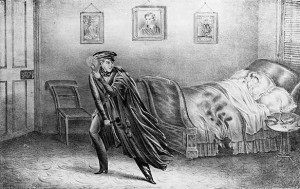 Six years later, in 1836, when another sensational murder was in the public’s attention, Bennett, now the owner of his own very successful newspaper, seized upon the opportunity to advance the cause of journalism by “discovering and encouraging the popular taste for vicarious vice and crime.” Helen Jewett was a prostitute savagely murdered with an axe and then set fire to. Polite society was shocked by the very detailed reports which appeared in Bennett’s paper. No other paper felt the subject fit for print. Bennett felt otherwise. As he proclaimed when he was refused his right to report upon the murder in Salem, “It is an old, worm-eaten Gothic dogma of Courts to consider the publicity given to every event by the Press as destructive to the interest of law and justice. . . . The press is the living Jury of the nation.”
Six years later, in 1836, when another sensational murder was in the public’s attention, Bennett, now the owner of his own very successful newspaper, seized upon the opportunity to advance the cause of journalism by “discovering and encouraging the popular taste for vicarious vice and crime.” Helen Jewett was a prostitute savagely murdered with an axe and then set fire to. Polite society was shocked by the very detailed reports which appeared in Bennett’s paper. No other paper felt the subject fit for print. Bennett felt otherwise. As he proclaimed when he was refused his right to report upon the murder in Salem, “It is an old, worm-eaten Gothic dogma of Courts to consider the publicity given to every event by the Press as destructive to the interest of law and justice. . . . The press is the living Jury of the nation.”
The man wanted to sell papers, in my opinion, and that was all. Neither did he limit his reporting to fact. Though he did visit the murder scenes, though he did dig into the histories of the victims and suspects, he often took an opposing course to those who, realising the profits the Herald was making, followed in his footsteps and covered the trial as well. When the murderer was discovered, and his conviction sure, Bennett took the opposing view (no doubt with a mind to sell a few more papers) and declared the suspect innocent. Enough of his readership sympathised with Bennett’s version of the murder’s story, that he walked free, though Bennett himself later admitted to believing in the man’s guilt.
In 1840 Poe was working for Graham’s Lady’s and Gentleman’s Magazine, for which he wrote and published “The Man of the Crowd”, which took up, as “Politan” had, the workings of the criminal mind, and in which, using the art of deduction, the narrator reads the histories of passers by from observing the minutest details in their appearances.
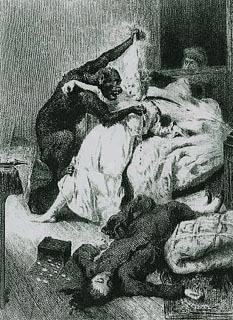 In 1841, Poe exercised his literary exercises in deductive reasoning once again in “The Murders in the Rue Morgue”, and drew (for perhaps the first time) a great deal of positive notice. However, a handful of reviewers pointed out “there could be no great skill in presenting a solution to a mystery of the author’s own devising.” Poe understood that the effect of the story was accomplished by his having written it backwards. The idea of unraveling a web which he himself had woven troubled even him. He wanted to be the detective himself, and to apply these powers of deductive reasoning on a real case. The story by which he would find such an outlet was unraveling as he pondered upon this problem, and the fact that it was already the most sensational murder in U.S. history provided him with an already certain audience.
In 1841, Poe exercised his literary exercises in deductive reasoning once again in “The Murders in the Rue Morgue”, and drew (for perhaps the first time) a great deal of positive notice. However, a handful of reviewers pointed out “there could be no great skill in presenting a solution to a mystery of the author’s own devising.” Poe understood that the effect of the story was accomplished by his having written it backwards. The idea of unraveling a web which he himself had woven troubled even him. He wanted to be the detective himself, and to apply these powers of deductive reasoning on a real case. The story by which he would find such an outlet was unraveling as he pondered upon this problem, and the fact that it was already the most sensational murder in U.S. history provided him with an already certain audience.
Mary Rogers was already a celebrity when her body was pulled from the Hudson River on 28 July 1841. Having worked for some time behind the counter at Anderson’s Tobacco Emporium, she was well known to much of the city as the beautiful cigar girl. Posters were made of her and she was very much admired.
If the case of Mary Rogers was fodder for Poe, it was also fodder for Bennett, who took up the case as his symbol for moral reform. But as he’d already set the pattern for investigative and sensational crime reporting, so did others, and the murder of Mary Rogers became an instant sensation.
As the murdered woman was from New York, and the body found in New Jersey, weeks went by before any real investigations occurred. In the mean time, theories were bandied about between the papers. Bennett began reporting about the incompetency of the men of law in both New York and New Jersey, and it was largely owing to him that the necessary money was raised to pay the investigators and to offer a reward for finding the murderer. Still the case stagnated, and when, a year later, the unsolved case seemed to have been very nearly forgotten, Poe put pen to paper, once more revived C. August Dupin, and attempted to solve the crime for himself, using his own genius and powers of deductive reasoning and relocating the story into that French setting he was so expert creating.
What was Poe’s conclusion? The present version of “The Mystery of Marie Roget” does not give it. Poe seems to have ramped himself up to some grand revelation and then omitted it. In truth, Poe’s conclusion was wrong. What is the true story of Mary Roger’s death? Well, I’m only half way through the “Beautiful Cigar Girl”, and the discussion of the story on Goodreads has not yet begun, and so, perhaps, I’ll save the details of her murder for next week.
June 11, 2012
And they lived happily ever after . . .
…or not.
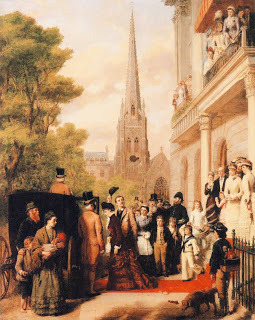 While I read a lot of non-fiction books about the Victorian era, I spend as much time, if not more, in fiction contemporary to the era, Dickens, Meredith, Hardy, Eliot (etc., etc., etc.) Here I get a real feel for what it was like to live then. I get the atmosphere and the nuances of language and setting that it’s hard to get in non-fiction (with perhaps the notable exception of Judith Flanders and Gillian Gill, who seem to write their non fiction works as engagingly as the best authors write their prose.)
While I read a lot of non-fiction books about the Victorian era, I spend as much time, if not more, in fiction contemporary to the era, Dickens, Meredith, Hardy, Eliot (etc., etc., etc.) Here I get a real feel for what it was like to live then. I get the atmosphere and the nuances of language and setting that it’s hard to get in non-fiction (with perhaps the notable exception of Judith Flanders and Gillian Gill, who seem to write their non fiction works as engagingly as the best authors write their prose.)
The sad fact is, however, that when it comes to writing weddings, fiction is an infertile crop. There’s nothing there. Weddings are mentioned briefly, or described as something that took place. We hear of the befores and afters, and then there is a blank … wherein we are meant, I suppose, to assume that the honeymoon took place and the maiden emerges a bride like a butterfly from it’s cocoon. But I wonder how often that was truly the case, particularly when women, by and large, were ignorant of the facts of life, while men were oft times all too familiar. Of course it is the common argument that a woman having grown up on a farm understood the laws of reproductive science. This may or may not be true. It was certainly not the case for Hardy’s Tess, and I have to wonder if the average Victorian maiden would even have supposed that the way of animals was the way of humans when the lights were out and clothes were off. Or, in Tess’s case … well, you get my point.
 A young woman, dreaming of married life, preparing herself for it, turned to the many etiquette guides available and read advice columns on how to keep a house and how to be a good wife in all matters publicly observable. But on the actual ceremonies (formal and informal) of being married, here again we find a lack of useful information. And, more often than not, these etiquette guides provide a great deal of room for argument. They are not, after all, records of what people did, but a guideline of what the ideal situation should call for.
A young woman, dreaming of married life, preparing herself for it, turned to the many etiquette guides available and read advice columns on how to keep a house and how to be a good wife in all matters publicly observable. But on the actual ceremonies (formal and informal) of being married, here again we find a lack of useful information. And, more often than not, these etiquette guides provide a great deal of room for argument. They are not, after all, records of what people did, but a guideline of what the ideal situation should call for.
So then, what exactly was involved in the average Victorian wedding? If, indeed, there ever existed such a thing.
From the point of proposal, the parents granting consent, a date being set, legal and financial matters having been decided, the first thing to be done was to announce the intentions of the couple to the local clergyman. According to The Marriage Act of 1753, the couple must have the announcement published (by banns) for three consecutive weeks. If the couple lived in different parishes, the banns must be read in both parishes. The marriage must be performed by an Anglican clergyman and both parties, unless given consent by a parent or guardian, must be 21. (Of course the laws changed throughout Victoria’s reign, and by mid-century there were allowances for other faiths, as well as for secular marriages. I should consequently note that this is not a concise guide, simply an idea of what it might have been like for the ‘average’ couple. If, once again, there was such a thing.)
In Regency literature we often hear of ‘special licenses’ which were rather expensive and implied a certain amount of haste to the union. They were also so prohibitively expensive that they were reserved for those of high rank and connection. A respectable Victorian, however, had a third option. An ordinary license, at a cost of £2 2s 6d. What Jane Austen Ate and Charles Dickens Knew, (which is an entertaining read, if not actually very scholarly, as it lumps the Victorian and the Regency eras together) quotes a mid-century etiquette manual as saying: ‘Marriage by banns is confined to the poorest classes, and a license is generally obtained by those who aspire to the “habits of good society.’
There is much more to all this than I have time for here, but for a more detailed outline of the laws governing marriage look here and here. And also at Jennifer Phegley’s thoroughly concise book Courtship and Marriage in Victorian England. (I’ve also relied heavily on Mary Lyndon Shanley’s Feminism, Marriage and the Law in Victorian England, and on the a reprinted book The Married Women’s Property Act, 1882)
In an age where waste was thing to be avoided at all costs, the bride’s dress was either chosen from the very best of that which she already owned, or it was bought special with the idea of being worn again. Victoria herself set the trend for wearing white at her own wedding in 1840, but it was hardly a universal custom even fifty years later.
The service, assuming it was an Anglican service, was read from the Book of Common Prayer. (For an example of how just such a wedding might play out, see here. WARNING, SHAMELESS PLUG.)
And at last we come to that crucial element: the kissing of the bride! Did it, or did it not take place within a Victorian wedding ceremony? Well, the jury is out, and believe me, I’ve done my research. The following is from the 1873 publication, The Bazaar Book of Decorum. The Care of the Person, Manners, Etiquette, and Ceremonials.
When the ceremony is over, the question sometimes arises whether the bride is to be kissed by the bridegroom. We should leave its decision to the instinct of affection were we not solemnly warned by a portentous authority on deportment that “the practice is decidedly to be avoided; it is never followed by people in the best society. A bridegroom with any tact will take care that this is known to his wife, since any disappointment of expectations would be a breach of good breeding.” The bride is congratulated by all her friends in the church, and elderly relatives will kiss her in congratulations: This is, of course, now settled beyond all peradventure of doubt by the fact that, according to the same authority, “The queen was kissed by the Duke of Sussex, but not by Prince Albert.”
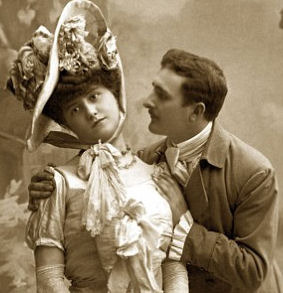 This is one of those cases where I find the etiquette guide rife with opportunity for argument. For example, as it states, in 1873, “the question sometimes arises.” So evidently there was room for this question to be asked. Is it done, or isn’t it? Which implies some see it done, or hear of it’s being done, (wish for it to be done?) have wondered if it should be done, and from other sources have heard that it is a practice to be avoided. To me this only proves that it is hardly an established rule. And the idea that the matter should be discussed beforehand leaves me simply reeling with ideas for plots. Can you imagine it? Cecil asks of Lucy, “My dear, do you think I might be allowed a kiss at the end of the ceremony?” “Why Cecil, upon the completion of the ceremony I am yours to do with what you will.” Ok, yes, that’s just my mind running rampant on the subject, (and perhaps A Room With a View does not provide the best characters from which to draw. The story, I’m sure, would be quite different were it George rather than Cecil, who’d no doubt take advantage of an impulsive moment, whether Lucy, or the crowd, objected or not. [And yes, I am aware Forrester is Edwardian and not Victorian.]) At any rate, the mere suggestion that there should be a discussion beforehand, and that the bride might be disappointed, only leads me to suspect there were as many ceremonial kisses as there were not.
This is one of those cases where I find the etiquette guide rife with opportunity for argument. For example, as it states, in 1873, “the question sometimes arises.” So evidently there was room for this question to be asked. Is it done, or isn’t it? Which implies some see it done, or hear of it’s being done, (wish for it to be done?) have wondered if it should be done, and from other sources have heard that it is a practice to be avoided. To me this only proves that it is hardly an established rule. And the idea that the matter should be discussed beforehand leaves me simply reeling with ideas for plots. Can you imagine it? Cecil asks of Lucy, “My dear, do you think I might be allowed a kiss at the end of the ceremony?” “Why Cecil, upon the completion of the ceremony I am yours to do with what you will.” Ok, yes, that’s just my mind running rampant on the subject, (and perhaps A Room With a View does not provide the best characters from which to draw. The story, I’m sure, would be quite different were it George rather than Cecil, who’d no doubt take advantage of an impulsive moment, whether Lucy, or the crowd, objected or not. [And yes, I am aware Forrester is Edwardian and not Victorian.]) At any rate, the mere suggestion that there should be a discussion beforehand, and that the bride might be disappointed, only leads me to suspect there were as many ceremonial kisses as there were not.
I also find it interesting that the example of the Queen was used. (Note that the author did not cite said ‘portentous authority’.) The Queen was married some thirty years previous. Did that mean, then, that Victoria’s example was only just catching on if the question was still being raised in 1873? Neither was Victoria the prude we like to think her. Her marriage was as much a marriage of state as it was romance. Also they were neither of them showy people when it came to their own sentiments. It’s also noted that her uncle (Augustus, Duke of Sussex) kissed her. Not entirely sure he’s a reliable foundation upon which to set a pattern of appropriate social behavior, but… ok.
And what of the honeymoon? Well, literature is simply bursting with examples of these post-wedding conjugal trips, are they not? Er…maybe not. Once again, turning to Jennifer Phegley, she cites a rather cynical work entitled, How to Be Happy Though Married.
You take … a man and a woman, who in nine cases out of ten know very little about each other (though they generally fancy they do), you cut off the woman from all her female friends, you deprive the man of his ordinary business and ordinary pleasures, and you condemn this unhappy pair to spend a month of enforced seclusion in each other’s society. If they marry in the summer and start on tour the man is oppressed with the plethora of sight-seeing while the lady, as often as not, becomes seriously ill from fatigue and excitement.
Not a very pretty picture, is it? And it is not so difficult for me to imagine what it was like for a very innocent wife to be suddenly educated in the ways of married life. For the innocent, I imagine it was rather a shock. For the not so innocent, it might actually be traumatic, particularly if the man is inexperienced with inexperienced women, or inexperienced himself, or not quite certain how to merge his carnal impulses, heretofore deemed evil, with those of wholesome family life.
Yes, the Victorians were complicated. Roll your eyes if you will, but I relate to them, and I admire them in my way.
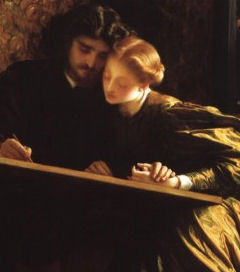 But here, perhaps, is where it might be best to take the Queen’s example, after all. She may not have taken much of a wedding holiday, but she made the most of her time. From what we understand of her now, related in Gillian Gill’s gripping We Two, she was no shrinking violet when it came to matters of conjugal romance. In fact she might very well have taken the lead. At least we understand, from trustworthy accounts, and by the number of children they had (which she would rather not have had) they had a very healthy love life.
But here, perhaps, is where it might be best to take the Queen’s example, after all. She may not have taken much of a wedding holiday, but she made the most of her time. From what we understand of her now, related in Gillian Gill’s gripping We Two, she was no shrinking violet when it came to matters of conjugal romance. In fact she might very well have taken the lead. At least we understand, from trustworthy accounts, and by the number of children they had (which she would rather not have had) they had a very healthy love life.
Personally speaking, I like to think that the general silence on the subject was out of respect of the union and not because they were all fumbling around in their bed clothes.
But then I’m an idealist.
So, what do I do when there is such a lack of reliable information to draw from? How do I write these weddings and newlywed scenes? All I can do is try to strike a balance between what I deem would be appropriate to the situation and what my modern day readers would want. And really . . . a wedding without a kiss? Are you kidding me?
June 5, 2012
The Opening of the Central and South London Railroad (The Tube) – an excerpt
4 November 1890
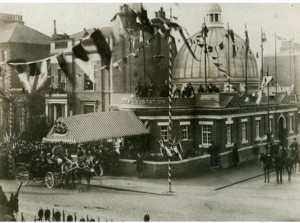 In Lambeth the crowds were positively thronging. Was it the railway that drew so many out? Or was it the chance of seeing—and perhaps being seen by—the Prince of Wales? Abbie wondered, but did not much care. She didn’t like crowds, and she was nervous. But, with the crush of people from all walks of society—Dukes and Lords in high hats and long coats, their ladies in fur and silk, mingling alongside the city’s poor and dirty and hungry—she supposed she need not worry too much about her appearance. Lady Crawford had not yet noticed her altered attire. (Her heavy wool coat concealed her quite entirely, after all.) And, at the moment, she was wholly pre-occupied in the imminent arrival of Prince Edward.
In Lambeth the crowds were positively thronging. Was it the railway that drew so many out? Or was it the chance of seeing—and perhaps being seen by—the Prince of Wales? Abbie wondered, but did not much care. She didn’t like crowds, and she was nervous. But, with the crush of people from all walks of society—Dukes and Lords in high hats and long coats, their ladies in fur and silk, mingling alongside the city’s poor and dirty and hungry—she supposed she need not worry too much about her appearance. Lady Crawford had not yet noticed her altered attire. (Her heavy wool coat concealed her quite entirely, after all.) And, at the moment, she was wholly pre-occupied in the imminent arrival of Prince Edward.
“There he is now,” Abbie heard Lady Barnwell say to Lady Crawford. She looked in the direction where others, too, had begun to point and look. The crowd bellowed deafening cheers. And then she saw it. The Prince’s procession. She watched as it made its way from the station, from which the Prince had arrived on the train’s maiden journey, toward the depot.
The crowd filled in the path parted by the carriages and many followed the procession down Clapham Road. But it was here, at the station crossroads, where exhibits and festivities had been set up, that Abbie wished to remain. She wanted to see the train, to go into the tunnel and see for herself how it was meant to operate. Why so much to-doing if they were never going to see it?
“Are you coming?” Katherine said to her.
They were the first words she had spoken to her all day.
Mariana, who had been standing quietly beside her, preoccupied with the crowd and the excitement, took hold of her arm and followed, as David and Katherine led them onward.
“We will be too late to get a seat, if you we do not hurry,” Katherine added over her shoulder.
David said nothing. He did not even acknowledge Abbie as he fell in line with his family. Had Katherine told him, then? It would not take much, she ventured, to turn him against her once and for all. If only she had a chance to find out. But that chance was not now, as they followed in the wake of the Prince’s carriage.
In the little park of land before the City and South London depot, a great marquee had been set up, beautifully decorated in blues and ochres—and gold. And with intricately woven palampores to line the walls and to serve as doorways and curtains. It seemed to Abbie’s inexperienced eyes very like a maharaja’s pavilion, fit for a prince—which was its purpose, after all.
Abbie’s party, the Crawfords and Barnwells, were the last to be admitted, and their table was situated very near the back, the farthest from the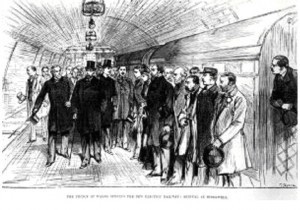 Prince’s view. Or would be, when he arrived.
Prince’s view. Or would be, when he arrived.
Sir Nicholas and Lord Barnwell excused themselves to speak with some acquaintances, while the rest of their party took their seats and waited for the Prince to arrive and for the meal to begin. Though Abbie was hungry, she was more conscious of the opportunity being missed. Would they not see the train, nor the station, at all? And as Lady Barnwell and Lady Crawford examined the room—the other guests, what they wore, who they were with—Abbie dared to ask the question.
It went unheard as the elder ladies chattered and gossiped, and as Katherine sat silent and cross. David, too, was too preoccupied to hear her, and James’ attention was wholly absorbed with Mariana.
“He has come,” Lady Crawford whispered to them all.
The crowd suddenly grew louder, then quieted again. The Prince entered and took his seat, looking around admiringly at the oriental décor, and remarking upon it.
At last the meal began.
Lady Crawford alternately prodded at her aspic and then at Abbie, urging her to sit straighter, to take smaller bites . . . not to eat that. No, not that. Perhaps a little . . . no. Until Abbie gave up the endeavour entirely.
Which inspired Lady Crawford to inquire: “Why do you not eat?”
“Perhaps she is nervous,” Lady Barnwell answered. “She has never been in the presence of royalty. She is not so used to it as we are.”
“As if we dine with the Queen once a fortnight.”
“Sarcasm does not become you, Katherine.” Lady Barnwell looked from her daughter to Abbie with a disapproving look.
Yes, Abbie was to blame for Katherine’s foul mood, and she was conscious of it. If she could fix the problem she would, but she knew no way, at present, of doing it.
“I wish I could say I thought your ward ready for this,” Lady Barnwell said now. “I regret to say I do not.”
Lady Crawford, too, examined Abbie. She had no doubts. Or did she? Her eyes narrowed as she looked her up and down.
“Unbutton your cloak, Arabella. I want to see your dress.”
“It is a little cold in here. I would really rather—”
“Unbutton it, I say,” Lady Crawford demanded as Lady Barnwell tsked and frowned.
Reluctantly, Abbie obeyed.
“That is not the dress I bought you, and it is certainly not the one you were meant to pick up from the dressmaker.”
“No, ma’am,” Abbie answered. “I’m afraid it’s not.”
“May I ask why not?”
“The truth is, ma’am, I did not feel it quite right to adopt a manner of dress so very different from what my sister would wear on this or any occasion. She remains in mourning. So must I show the proper respect for the father I dearly miss.”
“Well,” Lady Barnwell said and sat straighter in her chair. “I do not envy you the work you have undertaken, Margaret.”
“Do you know, Arabella,” Lady Crawford said at last and laid her wadded napkin upon the table, “sometimes I wonder if you are not a little ungrateful.”
“I am sorry, ma’am.”
“Perhaps if you insist on presuming to decide what is best for you on such occasions, the bill might come out of your allowance. Do you have any idea what I paid to have that dress ready on time?”
“Forgive me, ma’am, but I’d hardly dare presume to any figures. And I’d certainly never consider doing it at the table.” It was daring, but it was out before she’d given the words the thought they deserved.
“Oh, dear!” Lady Barnwell said and fanned herself as her friend turned a violent shade of red.
From the corner of her eye, she saw Katherine hide a smile in her napkin and look away.
“You are right. That is a conversation for another time. But I will take this opportunity to express my displeasure at finding Sarah has gone, as well. Is this, too, your doing?”
“No. It’s mine,” James answered for her.
“Yours?” Ruskin demanded.
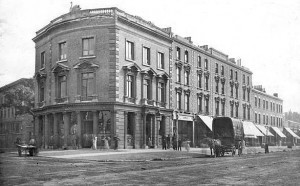 “It turns out the position was quite beyond her. I felt it necessary to let her go.”
“It turns out the position was quite beyond her. I felt it necessary to let her go.”
“Let her go? You go hiring and firing at your own pleasure, James, without a thought that it isn’t your place. How dare you do it without consulting me!”
“I’ve not done any hiring. Who said I’d hired anyone?”
“You know very well what you’ve done. What I’d like to know is why you thought it your place to do it.”
“Is that an answer you’d like to have now, dear brother? Because, to be quite honest, you figured into the decision. Shall I explain how?”
Ruskin turned a little pale, but said nothing. Nor was he given much opportunity to do it.
“This is not the place for this,” Lady Crawford very nearly hissed. “Needless to say we are all very disappointed in you, Arabella. Very disappointed, indeed.”
“Well I’m not disappointed,” James said to Mariana. “Are you, Miss Gray? Or is that Holyoak. I’m simply rotten with names.”
“James, please,” Mariana said and stabbed broodingly at her aspic.
Lady Barnwell tsked again in Abbie’s direction. Lady Crawford lifted her chin and looked away from the table, assessing, or so Abbie supposed, the likelihood that their little scene had been witnessed by any of their neighbours, or, God forbid, the Prince himself. No one, it seemed, from the moment they had entered until now, had taken any notice of them at all.
Abbie’s gaze shifted from Lady Crawford to pass over those who sat about the table. David had not eaten, but was sipping idly at his glass. James was pouring himself a second and offering to Mariana who refused. And Ruskin had forgotten his meal entirely and was simply staring at Abbie with what appeared to be a strange combination of anxious frustration. She turned from him. Her dress was a trifling matter, and she had no doubt he thought so, too. His displeasure was simply for her going against his mother’s wishes. Or was it more than that, after all? He seemed, at the moment, a little afraid of her.
Sir Nicholas and Lord Barnwell returned, still speaking among themselves, and it was not until they were seated that they realized that something at the table was amiss.
“What is this?” Sir Nicholas asked, looking from one dour face to another.
“After all the trouble we’ve gone to,” Lady Crawford said and waved a hand in Abbie’s direction. “Just look at her! After all the care we’ve taken to see she is at her best, and to come all this way to see . . .”
“To see a train,” Abbie reminded them, and tried to sound respectful.
“Which is precisely why the Prince of Wales is here,” Sir Nicholas added. “You did not think he came especially to see us, my dear?”
“No, of course not. But it was an opportunity for Arabella to be seen by him, and if he should pay her any especial attention, well her success would be guaranteed.”
“If you counted on so much, my dear lady, then it’s no wonder you are disappointed. I’m not sure it’s fair to lay the blame of the Prince’s preoccupation at Arrabella’s door. And as for the train,” he said addressing Abbie now, “there’ll be time to see it afterward.”
“But the crowds,” Lady Crawford said in objection.
“You do know it’s open to all,” added Lady Barnwell. “And underground, too. Must we, really?”
“For heaven’s sake,” David said and arose.
“Where are you going?” his mother asked of him.
“It’s close in here. I want some air.”
“You will miss the speeches.”
“I really do not care. Excuse me.”
Sir Nicholas cleared his throat and gave Ruskin an awkward glance. Abbie expected him to be angry with his son’s unwillingness to comply. Wasn’t he here to mix and mingle as well? Sir Nicholas, however, did not seem to mind at all that David would much rather not remain.
“Perhaps if you were to take Arabella with you,” he said to his son. “You might go now, before the crowds converge once more . . . ?”
David stopped, looked to Abbie, and then to Katherine. Then to his father, as if he were uncertain this was a burden he was prepared to bear.
“But, Nicholas,” Lady Crawford said, clearly disappointed by this change of plans. “Think of the opportunities he will miss, that they must all miss, if they quit the luncheon now.”
“It isn’t certain they’ll miss anything at all, my dear lady,” he said to his wife. “And if Miss Gray wishes to acquaint herself with this rail project,” he added with a pointed look in David’s direction, “then perhaps there is no better time to do it, when the crowds are occupied here and we are busy with our meal.”
“Oh . . . . very well,” Lady Crawford said at last, and in a pitch that was almost a whine.
Ruskin stood. “I suppose I might as well go with them.”
“I want you here, Ruskin,” his father said.
Ruskin sat again, picked his napkin up, and shook it out as if it had caused him some offence.
“Miss Gray,” David said, addressing her very respectfully. He turned then to her sister, “Miss Mariana. If you would care to accompany me, it would be my pleasure . . .”
Abbie arose, and Mariana as well. And so, necessarily, did all the gentlemen.
“You too, James?” Lady Crawford asked of her youngest son as he moved to follow them.
Abbie did not stop to wait for the answer, and neither was it given by James, but by his father.
“Let him go.”
Once more outside, Abbie took a steadying breath and let it out slowly. She took her sister’s arm and waited for David to lead the way, but he was  looking over her shoulder in the direction of the tent door. She turned to see the curtain part again.
looking over her shoulder in the direction of the tent door. She turned to see the curtain part again.
“Wait. I’m coming,” Katherine said as she joined them.
David took her hand and kissed her on the temple. Surely it meant a great deal to him to be able to share this with her.
“Shall we, then?” he said, and at last led the way.
Abbie and Mariana followed, but James was not to be left behind.
“You don’t really mean to make me walk by myself, do you?”
“Of course not,” Abbie said and made room for him between them.
“Are you really such a child, Mr. Crawford?” Mariana asked him.
“Who’s to say I may not have the opportunity to play the gallant hero today?”
“Who indeed?” Mariana said, and though she tried to stifle the smile that followed this, she was unsuccessful. “It’s something we would all like to see, I’m sure.”
“None more so than myself,” his brother said and walked on.
Abbie followed behind David and Katherine, who did not talk, and beside James and Mariana who did. After the din and commotion of the luncheon, she was almost grateful for a moment of peace. It did not last long. Soon enough they were back amidst the throng of the festivities, and in a moment or two more, they were entering the domed station.
The tunnel, once they arrived there via a hydraulic lift, was not quite the dark and foreboding place Abbie had expected. It was brightly lit by both gas and electricity, and the walls, the vaulted ceiling, too, were tiled in white, which shone and reflected and made the tunnel seem almost comfortable.
The train sat on one side of the platform, and an attendant, by way of opening the gate, encouraged them to board. David handed Katherine up, then turned to offer the same assistance to Abbie, who hesitated a moment before giving David her hand. His attentiveness seemed to her a trifle forced. He did not smile, would hardly meet her gaze. But he was being polite. Perhaps that was the best she could hope for under the circumstances. She only wished she knew just what those circumstances were. Was there a way to find out?
Once inside, they examined the car—a single compartment—in close detail. The walls and doors of gleaming wood, the vaulted, whitewashed ceiling. The high backed and comfortable benches, one on each side of the long car, and the narrow row of windows just above the seats’ backs. Through these there wasn’t much to see. The train sat stationary today, allowing for a view of the platform without. Travelling through the tunnels, however, would be quite dark. Still, they offered a sort of optimism that Abbie found comforting. In the reflection she caught David’s gaze, which altered its direction the moment her eyes met his.
David looked to Katherine, who was apparently not so pleased by the spectacle as was he.
“I can’t imagine who would want to ride on such a narrow, cramped thing,” she said. “Scores of people all in one car, trapped together underground, and with no way of knowing just who you might be sitting next to. It could be a lunatic or a murderer for all you know.” And she rubbed her fingers together as if she’d already acquired so much unwanted human filth. She turned and exited the car.
“I too find it rather cramped and close,” Mariana said, breaking the awkward silence. “Do you mind, Abbie, if I wait for you on the platform?”
“Not at all,” she said and watched as James accompanied her sister and Katherine off the train.
Perhaps Abbie ought to follow, but she did wish for a moment more. To see the train, yes. But to speak with David if she could manage it.
“It is not steam, I think,” she said, and was truly curious to know. “Not down so far beneath the surface.”
“No,” he answered. “It was meant to be run by cable, but they at last decided on electricity. It’s the first major railway to use it.”
“I venture it won’t be the last.”
“No,” he said and smiled, apparently encouraged. “There are others being built as we speak. In America, and on the Continent.”
“It’s a shame we can’t actually travel in them today. Do they not begin running right away?”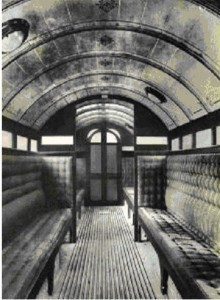
“It won’t open to the public for another six weeks.”
“Six weeks? Won’t we have returned to Holdaway by then?”
“I believe so.”
“How very disappointing.”
There was silence, and then it was broken as they both spoke at once.
“Look, I’m sorry about—” David began, but stopped upon realising Abbie had spoken as well.
“I apologise for the—”
They were both silent again. It was David who spoke first. “My mother likes to make a great matter out of small things. I hope you will not let her upset you.”
“It is difficult to avoid, it seems. But you did advise me against doing that which I did not wish to do.”
“I did. And I meant it. We’re all a little highly strung just now. It isn’t your fault.”
“Are you certain of that?”
He looked at her a moment, and looked away, examining the carriage once more. But the car was not large, and all there was to see had been seen already.
“Katherine is unhappy. That at least is my fault.”
“Perhaps,” he answered.
“Has she told you what it is over, our . . . disagreement?”
“No,” David answered with a fleeting smile and an even more fleeting glance in her direction.
“She will, of course. She must.”
“I’ve forbidden her from speaking of it—to me, or to anyone.”
“Have you?” Abbie asked him and hesitated to take hope. “But why?”
Neither did he answer this.
“If I should cause embarrassment or dishonour . . .”
“The dishonour’s been done already.”
“Because I’m here?”
“Stop that, will you? There is no shame in our having adopted you as our special cause. If that is what we choose to do, whose business is it but our own? But if you truly believe you are not fit to be among us, you will, whether you intend to do it or not, convince others to believe it, too. I do not know what this great controversy is between you and Katherine. If you wish to tell me I’ll be happy to hear it. If not then I’ll respect your wish for privacy. But if you fear dishonour, truly, I have to tell you, I think it’s just as likely to come as a consequence of encouraging you to feel obligated to us for that which you had no choice but to accept.”
“But I thought I was an avaricious grasper. Were those not your words?”
David removed his hat and rubbed at his forehead.
“Forgive me if I find you puzzling and unpredictable. You are certainly inconsistent.”
He nodded his acknowledgement of this. She took the opportunity of the silence to contemplate all he had said.
“Is there a price?” she asked him at last. “Is that what you are trying to tell me?”
“Is there some horrid secret that will put all my family’s plans for you at risk? Is that what you are trying to tell me?”
Neither question could or would be answered, and so silence ensued once more.
“Look,” David said, coming to stand very near her, “I cannot say I do not care what comes of all of this. I simply care for different reasons. Make your choice. Decide what you would do. Take no one’s happiness into account but your own.”
“You would encourage me to be selfish?”
“I have a feeling it’s not something you are used to doing. Of the average person I would hesitate to suggest any such thing. Of you, I think it’s precisely what you need most to consider.”
“And if it all blows up in your faces?”
“Then it is the risk we took in having you.”
“It is hardly a risk you chose to take.”
“I am choosing it now.”
She looked at him, uncertain what to say, or even to believe. He appeared perfectly and soberly sincere.
“We should go,” he said.
She stopped him with a hand on his arm. “Thank you.”
He only shook his head in answer.
“This train,” she said, stopping him again, “it means a great deal to you, doesn’t it?”
He smiled briefly, even sadly. “If I am to fulfil my obligation, I am to encourage you to do the same.”
“I do already, but why should it matter if I—”
She was interrupted by the opening of the door. James stepped inside. “We have company,” he said, looking only, and very intently, at David.
David looked at his brother for a moment, apparently puzzled.
“It seems there are some people we just keep bumping into,” James said as if it should offer some clarification.
Clearly it did, for David immediately followed after James, leading Abbie by the elbow and then handing her down to the platform once more.
“Shall we go, then?” James asked as they joined the others, and in a manner entirely different from the concerned one Abbie had just witnessed. He was perfectly jolly now.
In the lift, David stood very near his brother. “What is he doing here?”
“I’m not quite certain,” James answered. “Not yet, at any rate.
“Who?” Mariana asked. “Tell me who it is?”
“James Benderby. I’ve seen him hanging about your neighbourhood. Is there any way he can have known we’d be here today?”
“Oh no,” was all Abbie could think to say, and felt her sister take a tight hold of her arm.
“Of course, it’s possible,” was Mariana’s answer.
“Who is this man?” Katherine asked.
“He was one of our labourers.”
“Was? But no more?”
“Precisely.”
“And you do not know what he wants?”
“Well,” James said, but haltingly. “I suppose there is one simple answer.”
“Which is?”
They had reached the surface now, and the opening of the door released James from any obligation to answer. Likely he would not have done it anyway.
Again they went quickly on their way, but they had not crossed the station floor before Benderby was seen to come out of the stairwell, breathless and perspiring.
“Move along,” James said, once more in his merry voice.
The Crawford carriages, and that which belonged to the Barnwell’s, were on the street outside. Three altogether. James put Mariana and Katherine into the first. “You’ll send them on?” James asked of his brother.
“Yes, of course. Where are you going?”
“I’m going to go see what this is about.”
“I don’t see him now,” David observed.
“No,” James said. “But that’s little comfort.” And he slid off into the crowd.
“Please, Miss Gray,” David said to her as she hesitated join her sister and Katherine in the carriage.
“Let me stay.”
“I don’t think so.”
“I can talk to him. I think I know what he wants. And I can talk to him.”
“It isn’t worth the risk, Miss Gray. I think it best to let James handle this.”
“Please?” she said. “Let me try. We’ll deal with him together, as we did with Mr. Summerson.”
Reluctant still, he looked up at the driver of the first carriage and signalled for it to drive on home. A second carriage he directed to return to the marquee to fetch his parents and Lord and Lady Barnwell.
 And then it was just he and Abbie. “I have a feeling I’ll regret this,” he said. “Until he can be found, will you . . . ?” He gestured toward the interior of the second carriage.
And then it was just he and Abbie. “I have a feeling I’ll regret this,” he said. “Until he can be found, will you . . . ?” He gestured toward the interior of the second carriage.
She agreed with a nod and stepped up. But when she turned to take the hand David offered, she stopped and stepped down once more.”
“There he is!”
***Read the original newspaper articles here, and here.
Cry of the Peacock will be available October 2012.
May 29, 2012
No Name
So I’m just finishing up the Goodreads discussion on No Name, by Wilkie Collins. Which means I’ve finished the book! I really ought to have read it sooner and I’ll tell you why. It has SO much in common with Of Moths & Butterflies it’s almost frightening. In fact, if you take my suggestion and read it, and if you’ve read Moths, you’ll probably have a hard time believing this book didn’t inspire mine. But it didn’t. It was actually my uber-fantastic illustrator B. Lloyd who suggested I read it. And yes, as I said, I should have done it sooner.
The book starts out with two sisters. Norah and Magdalen. Now, knowing that Collins and Dickens were best friends, you can probably bet that name Magdalen means something. Only not quite what you’d think. Well … not quite what I thought. He does what he does best, gives us clues and then leads us astray, only to bring us round again so that we’re looking at an issue from an angle we hadn’t expected, or would not have chosen for ourselves. (I love this about George Eliot, too, particularly in her treatment of the Jewish culture, family, and gentlemanly honour in Daniel Deronda.) Magdalen is no Magdalene by the common understanding. (For more on the topic of the Victorian Magdalene and Magdalene societies, I’ll have an upcoming post.) What she is, but does not know, is the illegitimate child of her parents who, for most of her life, were never married. They couldn’t marry, you see, because, like George Eliot’s life companion, George Henry Lewes, he was already married. But then his wife dies. His girls are nearly women. He marries the mother of his children, then learns, by a peculiar condition of law, that a man’s will, upon his marriage is void, and must be rewritten.
Up to that moment he, like many other persons, had been absolutely ignorant that a man’s marriage is, legally as well as socially, considered to be the most important event in his life; that it destroys the validity of any will which he may have made as a single man; and that it renders absolutely necessary the entire reassertion of his testamentary intentions in the character of a husband.
Only he doesn’t get the chance. And so, Norah and Magdalen are left with nothing. Their father’s fortune transfers to an estranged uncle, and then to a cousin upon the uncles death. Neither of them will lift a finger to help the disenfranchised sisters. And the law, to the detriment of Nora and Magdalen, is all on the side of the men who inherited. The girls are illegitimate, they have No Name to claim for their own and are cast upon the world to make their way. Only they go about it very differently. Nora accepts her lot, but Magdalen, again drawing a comparison to Daniel Deronda’s Gwendolyn, refuses to sit back and accept misfortune as her lot.
And here is where the coincidences begin to rain down. Magdalen, in an attempt to regain her fortune by any means she can, determines to marry her cousin Noel. She marries him, under an assumed name, and by fraudulent means. And so the question of marriage and the validity of it comes in. (Of which I’ve already written a post, but will be writing another, so keep an eye out for that as well.) She is also warned, by a sort of strange relation (her mother’s half brother or step brother or some such) who she has enlisted to help her, that a third party might challenge the validity of the marriage while her husband lives.
“If Mr. Noel Vanstone ever discovers that you have knowingly married him under a false name, he can apply to the Ecclesiastical Court to have his marriage declared null and void. The issue of the application would rest with the judges. But if he could prove that he had been intentionally deceived, the legal opinion is that his case would be a strong one.”
“Suppose I chose to apply on my side?” said Magdalen, eagerly. “What then?”
“You might make the application,” replied the captain. “But remember one thing—you would come into Court with the acknowledgment of your own deception. I leave you to imagine what the judges would think of that.”
“Did the lawyer tell you anything else?”
“One thing besides,” said Captain Wragge. “Whatever the law might do with the marriage in the lifetime of both the parties to it—on the death of either one of them, no application made by the survivor would avail; and, as to the case of that survivor, the marriage would remain valid. You understand? If he dies, or if you die—and if no application has been made to the Court—he the survivor, or you the survivor, would have no power of disputing the marriage. But in the lifetime of both of you, if he claimed to have the marriage dissolved, the chances are all in favor of his carrying his point.”
There was some debate amongst the reading group as to what this meant. I don’t understand what need Magdalen would have of challenging her own marriage after Noel died. She would have the money and she’d be free to marry again if she wished. In my mind, and having researched marriage law for Moths, I decided what he was warning her was that NO survivor could challenge the marriage, including any interested third party who wished to deny her of her inheritance. Or perhaps he’s just warning her that once this is done, it cannot be undone.
Of course in Moths, this is all switched, and it’s he who marries under a false name and she who is coerced into it (which would also make it invalid). The marriage was conducted in good faith on the part of the gentleman. The fraud came in by that third party, and it could be challenged by another party. But, most likely, it would stand. That it would ever be annulled was likely not possible, but it was a threat nevertheless and one that was used to keep the parties in question obedient to the wishes of the controlling uncle.
Back to No Name, Magdalen’s attempts to get the money through her cousin are frustrated (they’re always being frustrated) and so, making another attempt, she goes in disguise to the house of the next in line to inherit and hires herself out as a servant.
I know!
So yes, I sort of wished I’d read this earlier. But I think I got my facts all straight and that it all works. It is sort of reassuring to know that these plot devices have been used before. It’s like evidence that it could have been done, or that others have made it work. There is a great deal of Moths that was borrowed from the works of others, as I think I’ve said before. Moths has a bit of Tess and of Nicholas Nickleby, of Our Mutual Friend and Daniel Deronda and clearly some Collins, too!
Returning to Collins, I would like to point out that there are some great lines in No Name that are certainly worth remembering.
The lasting preservation of a secret is a miracle which the world has never yet seen.
Giants of both sexes are, by a wise dispensation of Providence, created, for the most part, gentle. If Mrs. Wragge and a lamb had been placed side by side, comparison, under those circumstances, would have exposed the lamb as a rank impostor.
The one thing needful is never to let Mrs. Lecount catch you with your wits wool-gathering.
There is also a priceless soliloquy on the moral responsibility of the Swindler:
Who, and what am I? Carry your mind back to our conversation on the Walls of this interesting City, and let us start once more from your point of view. I am a Rogue; and, in that capacity (as I have already pointed out), the most useful man you possibly could have met with. Now observe! There are many varieties of Rogue; let me tell you my variety, to begin with. I am a Swindler.”
“Don’t be shocked,” proceeded the captain; “don’t be astonished. Swindler is nothing but a word of two syllables. S, W, I, N, D—swind; L, E, R—ler; Swindler. Definition: A moral agriculturist; a man who cultivates the field of human sympathy. I am that moral agriculturist, that cultivating man. Narrow-minded mediocrity, envious of my success in my profession, calls me a Swindler. What of that? The same low tone of mind assails men in other professions in a similar manner—calls great writers scribblers—great generals, butchers—and so on. It entirely depends on the point of view. Adopting your point, I announce myself intelligibly as a Swindler. Now return the obligation, and adopt mine. Hear what I have to say for myself, in the exercise of my profession.—Shall I continue to put it frankly?”
“Yes,” said Magdalen; “and I’ll tell you frankly afterward what I think of it.”
The captain cleared his throat; mentally assembled his entire army of words—horse, foot, artillery, and reserves; put himself at the head; and dashed into action, to carry the moral intrenchments of Society by a general charge. (I love this!)
“Now observe,” he began. “Here am I, a needy object. Very good. Without complicating the question by asking how I come to be in that condition, I will merely inquire whether it is, or is not, the duty of a Christian community to help the needy. If you say No, you simply shock me; and there is an end of it; if you say Yes, then I beg to ask, Why am I to blame for making a Christian community do its duty? You may say, Is a careful man who has saved money bound to spend it again on a careless stranger who has saved none? Why of course he is! And on what ground, pray? Good heavens! on the ground that he has got the money, to be sure. All the world over, the man who has not got the thing, obtains it, on one pretense or another, of the man who has—and, in nine cases out of ten, the pretense is a false one. What! your pockets are full, and my pockets are empty; and you refuse to help me? Sordid wretch! do you think I will allow you to violate the sacred obligations of charity in my person? I won’t allow you—I say, distinctly, I won’t allow you. Those are my principles as a moral agriculturist. Principles which admit of trickery? Certainly. Am I to blame if the field of human sympathy can’t be cultivated in any other way? Consult my brother agriculturists in the mere farming line—do they get their crops for the asking? No! they must circumvent arid Nature exactly as I circumvent sordid Man. They must plow, and sow, and top-dress, and bottom-dress, and deep-drain, and surface-drain, and all the rest of it. Why am I to be checked in the vast occupation of deep-draining mankind? Why am I to be persecuted for habitually exciting the noblest feelings of our common nature? Infamous!—I can characterize it by no other word—infamous! If I hadn’t confidence in the future, I should despair of humanity—but I have confidence in the future. Yes! one of these days (when I am dead and gone), as ideas enlarge and enlightenment progresses, the abstract merits of the profession now called swindling will be recognized. When that day comes, don’t drag me out of my grave and give me a public funeral; don’t take advantage of my having no voice to raise in my own defense, and insult me by a national statue. No! do me justice on my tombstone; dash me off, in one masterly sentence, on my epitaph. Here lies Wragge, embalmed in the tardy recognition of his species: he plowed, sowed, and reaped his fellow-creatures; and enlightened posterity congratulates him on the uniform excellence of his crops.”
In the end I felt that Collins was trying to persuade his readers to be more understanding of those whose circumstances are less than ideal, but whose circumstances were beyond their control. It was a trying age, full of hypocrisy and unjust laws. They knew it then. Noel even admits it is unfair he had Magdalen’s money, but the law is on his side, and he’d be a fool to give back what the law has given him. I suppose one might also say that it shows how patience and submissiveness as Norah exemplifies has it’s rewards. Magdalen’s efforts came to nothing, after all, save to reduce her nearly to death. But that final point, I think, might be up for some debate. The story was about Magdalen, and Magdalen, in the end, did prevail, even if it was only over her darker self.
This was a fantastic read, and I highly suggest it to anyone who loves Victorian literature. B. Lloyd also recommended Armadale. And so I’ll be tackling that one next. And from now on, I’ll not procrastinate following her wise counsel!
May 25, 2012
On revising and revisioning
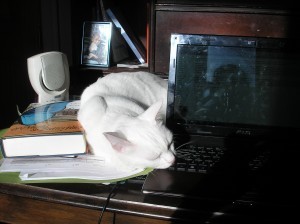 I’ve neglected my blog lately. I’m neck deep in revisions for Cry of the Peacock and I tend to shut everything out when I’m in my own books. There’s just too much to mentally keep track of for me to handle much more, and blogging takes so much time. Not that I don’t love and appreciate my readers, but I really do see it as a supplement to the books and not a way to grow an audience.
I’ve neglected my blog lately. I’m neck deep in revisions for Cry of the Peacock and I tend to shut everything out when I’m in my own books. There’s just too much to mentally keep track of for me to handle much more, and blogging takes so much time. Not that I don’t love and appreciate my readers, but I really do see it as a supplement to the books and not a way to grow an audience.
It’s interesting, though, delving back into Peacock after a year and a half absence from it. I realise I’ve not been as good at taking criticism as I should be. It’s taken me years to learn how to separate useful criticism from the not so useful. And it’s hard to know your work isn’t as good as you think it is. But experience, and time, do offer clarity. I thought this book was ready two years ago when an agent very nearly signed it. I didn’t understand what the problems were. I revamped it, sent it out to friends and editors. Still there were problems. The same problems. And I was heartsick with frustration. I just couldn’t see it. It wasn’t for a lack of trying, either. It was for a lack of ability to see it clearly. Only time could give me that.
Going back into it this time, I see exactly what the problems are. I see that my desperate attempts to salvage scenes and dialogues I once thought were gems have weighed the book down. I read it this time with almost new eyes. “What on earth was I thinking?” I asked myself more than once. Some of the dialogues, written nearly ten years ago, were just plain immature. Others had ceased to work as the scenes around them had altered so much as to make them obsolete.
Looking at it with fresh eyes, I can see that there is a lot of rewriting that needs to be done. A lot of plot restructuring. A lot of relayering and filling in. A lot of development of character and motivation. I’m halfway through it now, and I’m so pleased by how it’s shaping up. I really have worried that I’d never be able to get this book right. It was my first book and there’s a great deal of attachment to it. But I have learned, through trial and error, how the revision process works and how to really see when the focus is right. Of course I still have to send it back out to my editors, and of course I know there will be issues remaining, but I’ll know how to treat them this time. And it will be for different reasons than before. Miscommunications, perhaps some filling in of descriptive detail (I’m always spare with those) or a lack of clarity. But the plot…I think I’m getting it.
A lot of this clarity came by way of just taking that break. But I know a great deal of it also came by way of the good and honest critics who helped me, and did not shy away when I cried and whined at the changes still ahead of me. (For that I’m very sorry.)
I’m so glad now for that experience on Authonomy. Not only did I make many wonderful friends and met so many wonderful authors, friends and not so friends, but I really learned how to listen to criticism. Some comments are only opinion. Some have to be considered in the context of the reader. I think I have one review of Moths from a reader who doesn’t read historical fiction or classic literature, and they didn’t get it. That’s fair enough. I can respect that and I’m grateful they tried something new, even if they turned out not to like it. I’ve had a few people say it’s too long. That’s fair, as well. I’m aware that for some, it will seem too long, and that, quite possibly, it is too long, but it was what I wanted of it at the time. And from that I know to be more careful of keeping my plots moving and watching my word count (boy do I struggle with word count!). For others it was boring. Fair enough. It won’t please everyone. Some feel the heroine should have resolved her issues sooner. I agree with that. At least I understand where those criticisms are coming from. I purposefully dragged it out to show how very difficult such struggles are to overcome. I admit I may have dragged it out too far. And so now I’m conscious of those things.
There are many, too, who loved it, too. And of course those comments are helpful. When you hear the same things over and over again, you know you’re doing something right (or wrong, as the case may be.) Moths is evocative of the era, well researched, convincing and relevant. I love that! (I also love it when people say it’s not too long, but that’s just me taking comfort in what it is rather than what it should be.)
 It’s true a book reaches a certain state of finishedness, if you will. Peacock isn’t there yet. And perhaps in a few years’ time I’ll be able to look over Moths once more and see how I might have done it a great deal better. That’s called growing, and a writer must always be prepared to grow and improve. That’s the whole purpose of experience. I used to be afraid of that. Not of the growth in itself, but of being able to say the books I publish now are better than the books I’ve published before. To me it was like saying my work, when it was published then, wasn’t as good as it could have been. It’s a useless way to look at things, and I’ve learned to overcome it. Moths will not be my strongest piece. That’s a good thing. It was what I needed it to be, though. It told a story I needed to have told. And now I can move on. The next books won’t be so personal. I won’t be quite so attached to them. I’m enjoying the writing and revising of them more. And I’m meeting my deadlines! Which means there’s much less stress than there has been in the past.
It’s true a book reaches a certain state of finishedness, if you will. Peacock isn’t there yet. And perhaps in a few years’ time I’ll be able to look over Moths once more and see how I might have done it a great deal better. That’s called growing, and a writer must always be prepared to grow and improve. That’s the whole purpose of experience. I used to be afraid of that. Not of the growth in itself, but of being able to say the books I publish now are better than the books I’ve published before. To me it was like saying my work, when it was published then, wasn’t as good as it could have been. It’s a useless way to look at things, and I’ve learned to overcome it. Moths will not be my strongest piece. That’s a good thing. It was what I needed it to be, though. It told a story I needed to have told. And now I can move on. The next books won’t be so personal. I won’t be quite so attached to them. I’m enjoying the writing and revising of them more. And I’m meeting my deadlines! Which means there’s much less stress than there has been in the past.
I’m looking forward to having Peacock out to readers. I know many others are looking forward to it, too. If you’re one of them, you can expect to see Cry of the Peacock this October (2012), and of course I’ll keep the updates coming.
For now, though, it’s back to work for me.
April 24, 2012
On Wilkie Collins (It’s in the details, man!)
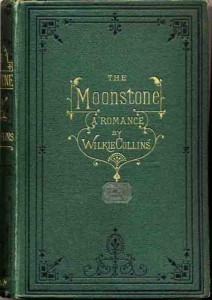 True he’s not my only favorite author. If you know me at all, you’ve likely heard me wax poetic about many a Victorian writer; Dickens, George Meredith, Silas Hocking, George Eliot…. The truth is, I learn so much from classic literature that it not only forms the foundation of my research, it is the foundation of my writing career. I didn’t start as a writer, after all. I started as an avid reader, who got so enthralled in these wonderful stories, that I eventually dared to try my hand at it. But I still must read, read, read in order to learn, learn, learn. It helps me in other ways, too, but chiefest among them is finding the golden nuggets of detail that make a little bit of history clear, or, more exciting still, shatter the preconceptions we’ve allowed to cement about an era that truly was very dynamic. For those details about the day to day lives of men and women (particularly women) in the Victorian era, there’s no one quite like Wilkie Collins.
True he’s not my only favorite author. If you know me at all, you’ve likely heard me wax poetic about many a Victorian writer; Dickens, George Meredith, Silas Hocking, George Eliot…. The truth is, I learn so much from classic literature that it not only forms the foundation of my research, it is the foundation of my writing career. I didn’t start as a writer, after all. I started as an avid reader, who got so enthralled in these wonderful stories, that I eventually dared to try my hand at it. But I still must read, read, read in order to learn, learn, learn. It helps me in other ways, too, but chiefest among them is finding the golden nuggets of detail that make a little bit of history clear, or, more exciting still, shatter the preconceptions we’ve allowed to cement about an era that truly was very dynamic. For those details about the day to day lives of men and women (particularly women) in the Victorian era, there’s no one quite like Wilkie Collins.
First a bit of history. William Collins was born January 8, 1826 in Marylebone, London. His father was a Royal Academy trained landscaper, also named William Collins. Hence the son took his uncle’s middle name, Wilkie, and by it was known most of his life. He lived for a time in Italy and France, when he was a boy of about ten. The time abroad greatly influenced his tastes.
Back home, and at a boarding school, Wilkie Collins was introduced to his creative career, by a bully. The lad tormented Collins and would not let him be until he agreed to tell him a story each night in order to help him get to sleep. Collins only spent two years at that school, but the creative germ took off and never let him go.
In 1843 his first story was published, but his first full length novel, Iolani, which he submitted two years later was rejected, never to be published in his lifetime. In 1851, however, he was introduced to Charles Dickens and a lifetime friendship took off, as well as the making of his career. Many of his works were either published or serialised in Dickens’ paper, “All the Year Round.” His most famous works include The Moonstone, The Woman in White, Armadale and No Name! Which book I’ve just begun and will be leading a discussion on over at Goodreads. So do, please join us. It’s going to be a lot of fun.
So why do I love Wilkie Collins so? Well, as I might have mentioned before … It’s in the details, my friends. In the details!
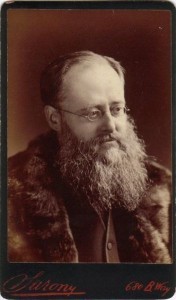 There are a great many understood stereotypes with regard to the Victorian era. Women had no rights, therefore had no will or purposeful ambition of their own. Of course this doesn’t make for very interesting storytelling, but one must break those preconceptions gently, so as not to offend the reader. I smirk here. Because if women weren’t strong in the Victorian era, who on earth did all the fighting for their rights? Men? Ha! Ok. I take it back. There were some men, like Collins, and Meredith who played the private and public champions for the cause of women. And I thank them. But for the most part, it took the courage of some very intrepid women in order to get the legistlation passed that would grant them their rights, their separate identities from the men they chose to marry (which I mean to cover in an upcoming post.)
There are a great many understood stereotypes with regard to the Victorian era. Women had no rights, therefore had no will or purposeful ambition of their own. Of course this doesn’t make for very interesting storytelling, but one must break those preconceptions gently, so as not to offend the reader. I smirk here. Because if women weren’t strong in the Victorian era, who on earth did all the fighting for their rights? Men? Ha! Ok. I take it back. There were some men, like Collins, and Meredith who played the private and public champions for the cause of women. And I thank them. But for the most part, it took the courage of some very intrepid women in order to get the legistlation passed that would grant them their rights, their separate identities from the men they chose to marry (which I mean to cover in an upcoming post.)
Needless to say, we modern readers like to read about strong women. We modern writers like to write about them. But at what point to you challenge preconcieved ideas at the risk of being reprimanded? For me, I look for such examples in contemporary literature. Not contemporary to my day, but theirs. And in Collins, it abounds.
See this from Marian Halcombe in The Woman in White:
“Are you to break your heart to set his mind at ease? No man under heaven deserves these sacrifices from women. Men! They are the enemies of our innocence and our peace – they drag us from our parents’ love and sisters’ friendship – they take us body and soul to themselves, and fasten our helpless lives to theirs as they chain up a dog to his kennel. And what does the best of them give us in return? Let me go, Laura – I am mad when I think of it!”
Indeed, it is only because of Marian’s strength that her sister is not grievously robbed by her husband, and that she ever survives her marriage to him.
When it comes to what we understand about fashion trends of the era, Collins likes to say it how it is. Of course all women wore corsets and laced them as tightly as they could. Didn’t they?
Again, from The Woman in White, but this from Mr. Hartright’s point of view, as he first observes Marian.
“Her figure was tall, yet not too tall; comely and well developed, yet not fat; her head set on her shoulders with an easy pliant firmness; her waist, perfection in the eyes of a man, for it occupied its natural place, it filled out its natural circle, it was visibly and delightfully undeformed by stays.”
Yes. That’s what it said! Now whether it means she did not wear a corset or rather that she didn’t tight-lace, I’m not certain. But I find that remarkable. Never before have I read such a thing as that. And that the passage should imply that liked a woman’s figure ‘undeformed by stays’, and that other men would agree with him, rather blew my mind when I first read it.
As I mentioned, I’m presently reading No Name, and so it only seems right that I include a few gems from it as well.
No name hinges on the legal aspects of inheritance and marriage law. I don’t think I will spoil anything for you by telling you that what comes of a marriage solemnised after the birth of a child results in that child being thrown upon the mercy of the world with No Name. But how it comes about is a bit of a puzzle. Fortunately for us modern readers, Collins knew better than to trust us to understand the law as he did. He even goes so far as to doubt that most men understood the consequences of late marriages which were meant to legitimise the births of their children. Well, in the eyes of the English legal system, it didn’t. In fact, it did one worse, by rending a man’s will, however tightly it was written, completely useless upon his marriage. See here:
Up to that moment he, like many other persons, had been absolutely ignorant that a man’s marriage is, legally as well as socially, considered to be the most important even in his life; that it destroys the validity of any will which he may have made as a single man’ ad that it renders absolutely necessary the entire reassertion of his testamentary intention in the character of a husband.
In explaining how all this has come about, it is necessary for the histories of the girl’s parents to be recounted. I’ve studied the rules of courtship. I’ve read countless etiquette manuals and books about it, both contemporary to their time and my own. And what I’ve learned from them is that so many guides and rule books would not have been written if the rules were so very set in stone. One of the rules I’ve used in a piece of my own writing, was that of not dancing with a woman more than thrice in an evening. Hmm. Well, it seems, that while that is the advice given from all quarters, there are still ways and means to skirt it. See here:
There they met. She produced a strong impression on him the moment he saw her. To me, as to him, she was a total stranger. An introduction to her, obtained in the customary manner, informed him that she as the daughter of one Mr. Blake. The rest he discovered from herself. They were partners in the dance (unobserved in that crowded ball-room) all through the evening.
This is interesting on several levels. They danced together and with no one else, I assume that constituted more than three dances. But as they were both strangers, there may well have been those who noticed and wondered, but as they were unknown, there was no gossip to spread, no scandal to form in the wake of it. If the two should form an attachment, who was to stop them? The lawyer, who is telling this tale, refers to an introduction ‘in the usual manner.’ The lawyer was not a stranger there, and he no doubt sought out someone who could introduce his friend to her connections, for she must have been invited by someone.
But that’s beside the point. I value it for the exception to the rules it illustrates.
Another thing I really like about Collins is his apparent fondness and respect for women. Like George Meredith, who also wrote extraordinarily strong women, his admiration for them is apparent. I noted this passage especially.
Her heart was the heart of a true woman. It accepted the conviction which raised Norah higher in her love: it rejected the doubt which threatened to place Magdalen lower.
I hope that is true of women still. I hope it is true of myself. At any rate, I’m a great fan of Collins as you can see. And I’m so excited to be leading the discussion of No Name this month on Goodreads. Do come join us there!
April 17, 2012
Lucky 7
 A Game of Excerpts
A Game of ExcerptsAs some of you may know, Of Moths & Butterflies was recently reviewed by the lovely Mirella Patzer. I was not only extremely pleased by her kind praise of my debut novel, but I was really honoured to be noticed by Mirella, for whom I have the greatest respect and admiration. As if her magnificent review wasn’t enough, she also tagged me to take part in this little Lucky 7 game that’s going around, where authors are chosen to share seven lines from their current work in progress. The timing could be better, for I return this week to working on Cry of the Peacock. It’s about time, too, as the publication date, October 2012, looms before me.
The contest rules are:
1. Go to page 77 of your current work in progress.
2. Go to line 7.
3. Copy the next 7 lines or sentences as written and post them onto your blog or website.
4. Tag 7 other authors.
5. Let them know they’ve been tagged.

Cry of the Peacock is the story of Abbie Gray, who has spent her life on the Radcliffe Estate as the daughter of the overseer. When her father dies, she finds herself the recipient of an offer to assume a place within her wealthy landlord’s family. She’s sceptical of the motivation behind such an extraordinary invitation, but having nowhere else to go, she accepts. But from the moment she enters their home, her suspicions that there is more to their kindness than meets the eye increases. Neither is she universally accepted among them. While the eldest brother and heir to the estate seems to have taken an exaggerated interest in her, his younger brothers are determined to expose her as a mercenary and an upstart, and to give her every reason to leave. But things, as Abbie feared, truly aren’t what they seem, and the outcome turns out to be more dire for the family than for Abbie. Of course, along the way, she forms allies, even if they are reluctant ones (at first).
Here’s a taste:
He spoke of piazzas and Palazzi and basilicas until it was all a blur of incomprehensible language. Antiquities, gallerias and musei littered the air and now and then he would drop into Latin or Italian—she was not always quite sure which was which—as his mother nodded and smiled and offered the perfectly placed “I see” whenever it was convenient.
“It sounds as though you had quite a time,” she said when it seemed he had at last finished.
“Yes,” he answered. “If I had not to drag James around to see the sights- At least his idea of sightseeing was somewhat different than mine,” and he darted a telling glance in Abbie’s direction…
Now to tag seven authors whose works I have both read and love. I hope they’ll be able to participate, but considering how busy some of these wonderful people are, I’ll excuse them if they cannot. Do check out their blogs anyway. They’re definitely worth a look.

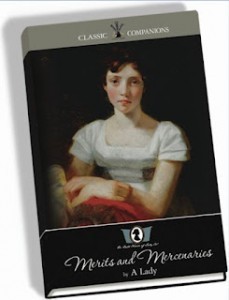
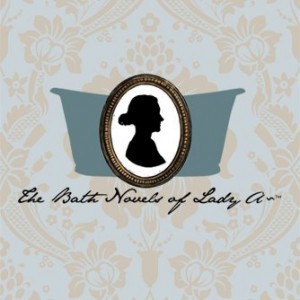



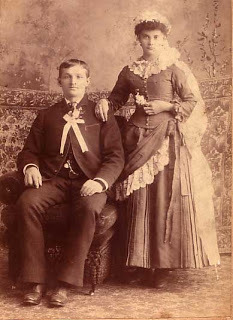
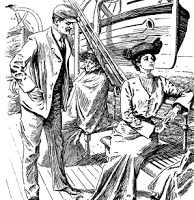

 Read More
Read More

